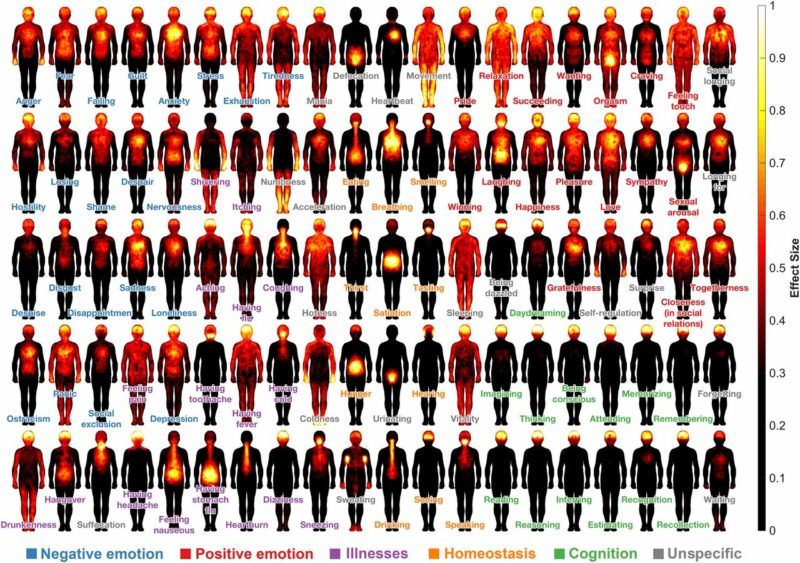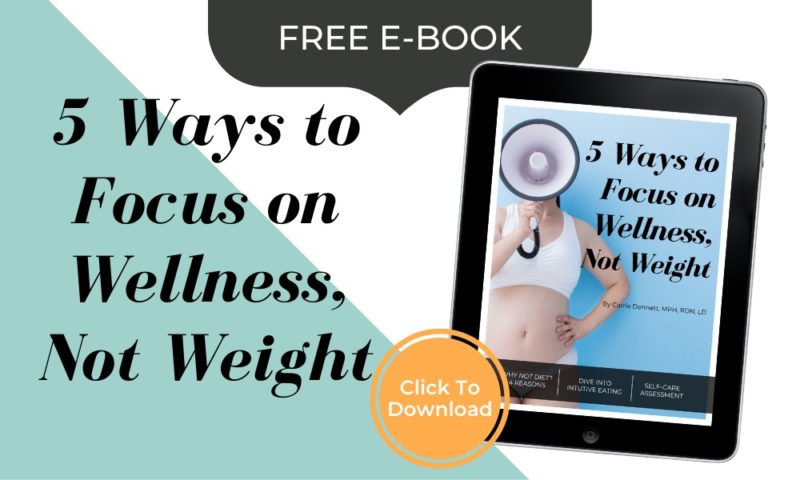
Things are really tough right now (she said, in the understatement of the century) and that means that you might be feeling ALL of your feelings, including those you would rather not have front-and-center. This is where acceptance can make a powerful difference. Yes, really.
First, let me be clear on what I mean by “acceptance.” Acceptance means recognizing that a situation is what it is and choosing not to engage in the mental struggles of denying reality or trying to ignore it. Acceptance does not mean that you like the situation or are resigned to it never changing.

Moving past struggle and denial
When I talk to people about acceptance, it’s usually in relation to struggles with food, or with emotions that directly impact eating behaviors. But the current coronavirus pandemic is both amplifying those food struggles in many people, while simultaneously overshadowing them.
What’s going on right now sucks, and how much it sucks for you depends on how much it has disrupted your life. Assuming that you have not become infected and seriously sick with the virus (so far I don’t know anyone personally who has, although I’m not optimistic that will continue to be true), your level of impact will depend on your job status, whether you suddenly have kids at home 24-7, and if you live in an area where you can easily enjoy the outdoors while still practicing social distancing.
It can be easy to slip into a “I don’t want this to be happening, when will it end?!” mindset, which can lead to anxiety or depression, or to deny the reality of the situation (“This can’t be happening to me”) and behave accordingly — posing a risk to yourselves and others. When we instead choose to accept the current situation, and focus on what we can still do (rather than what we can’t) and what we can do to (reasonably) keep ourselves healthy physically and mentally, it will be easier to weather what comes in the next weeks or months. Struggle and denial will get us nowhere. Acceptance allows us to truly do the best we can.
We’re all in this together, in different ways
I admit that I have been minimally impacted. I already work from home, we almost always cook from home, and I exercise at home or outside. My husband and I are staying away from his parents because they are in the at-risk group. A conference I was supposed to speak at in mid-May will likely be moved online, so while I’ll miss seeing my dietitian friends from around the country — as well as the visit with family I was going to add to the end of my trip — my talk on weight stigma will go on! I feel a little anxious when we go grocery shopping, which is new, but I double down on preventive hygiene.
I know many people who are in a similar situation, and I know others who are in a much worse situation. But no matter what the nature of the situation, acceptance, while not changing the situation itself, makes it easier to bear, and easier to see ways to make it better if those ways happen to present themselves. We stop wasting energy on things we can’t control so we have more to spend on things we can.

Knowing what you can — and can’t — control
Things we can’t control are coronavirus-related happenings in your city, state, country and around the world. We also can’t control whether the grocery store has what you want to buy at the time you are shopping. We can’t control that some of our plans may be canceled, or that places we might like to go are shut down. We can’t control being forced to work from home (although that’s better than not being able to work at all) or our kids being forced to learn from home. We can’t control the timeline for which things will get back to normal.
We can control washing our hands, avoiding non-essential outings and staying six feet away from people outside of our household. We can control whether we go to bed on time, stick to a routine, eat regularly, and get some physical activity (even if you don’t feel up to much). We can practice self-care, however we define that for ourselves. We can still connect with friends and family via phone or video chat. We can control how much coronavirus-related media we consume, and pull away if it’s making us anxious.

How we “feel” our feelings
One area of acceptance I want to hone in on is acceptance of our feelings. If you are feeling anxious, worrying about your anxiety, trying to deny your anxiety, or resisting your anxiety will likely make your anxiety stronger. In other words, feeling anxious about being anxious only makes you more anxious. You could say similar things about feeling sad, fearful or angry. Or about many other emotions.
It’s natural to feel some anxiety right now, even if it’s only when you have to leave your house to go to the grocery store. But accepting your feelings, and acknowledging that it’s a weird concept (for most people, anyway) to feel anxious about grocery shopping, can help you do what you need to do while staying as safe as possible. It’s better than feeling like a nervous wreck pushing a shopping cart!
But to accept what we’re feeling, we need to be able to identify what we’re feeling, and that’s hard for many people. I often share this “Feelings Inventory” from the Center for Nonviolent Communication. Along with that, lately I’ve been sharing this “Map of Subjective Feelings” (pictured above), which shows where different feelings (along with illnesses and normal body functions) tend to show up in the body. In other words, physical manifestations of our emotions. For example, I sometimes I know I’m stressed because I sense it emotionally, sometimes I don’t realize the extent of my stress until I notice the physical sensations that often accompany it.

Resources
The bottom line is that when we can name our feelings and accept that we are feeling them, our feelings have less power over us. Here are some resources that may be helpful:
- Book: “The Happiness Trap” by Russ Harris. This book is based on Acceptance and Commitment Therapy (ACT). See the “Struggle Switch” video below.
- Podcast/app/website: “Ten Percent Happier” with Dan Harris. The most recent podcast episodes relate to coping with the current pandemic, and they also have a free “Coronavirus Sanity Guide” on the website.
- Podcast: “The Minimalists.” The recent episodes help put things in perspective.
- “Resilience in Challenging Times” free meditation and mindfulness resources from Sounds True.
Disclaimer: All information provided here is of a general nature and is furnished only for educational purposes. This information is not to be taken as medical or other health advice pertaining to an individual’s specific health or medical condition. You agree that the use of this information is at your own risk.
Hi, I’m Carrie Dennett, MPH, RDN, a weight-inclusive registered dietitian, nutrition therapist and body image counselor. I offer compassionate, individualized care for adults of all ages, shapes, sizes and genders who want to break free from eating disorders, disordered eating or chronic dieting. If you need to learn how to manage IBS symptoms with food, or improve your nutrition and lifestyle habits to help manage a current health concern or simply support your overall health and well-being, I help people with that, too.
Need 1-on-1 help for your nutrition, eating, or body image concerns? Schedule a free 20-minute Discovery Call to talk about how I can help you and explore if we’re a good fit! I’m in-network with Regence BCBS, FirstChoice Health and Providence Health Plan, and can bill Blue Cross and/or Blue Shield insurances in many states. If I don’t take your insurance, I can help you seek reimbursement on your own. To learn more, explore my insurance and services areas page.
 Print This Post
Print This Post







